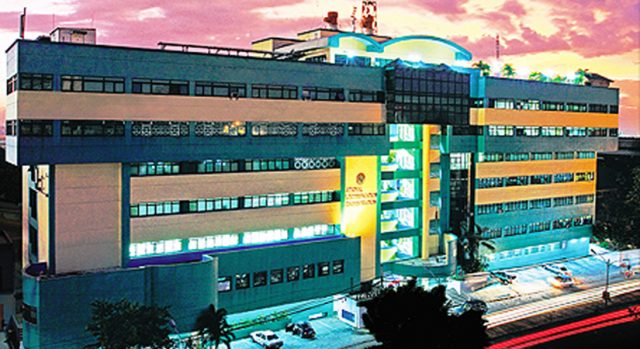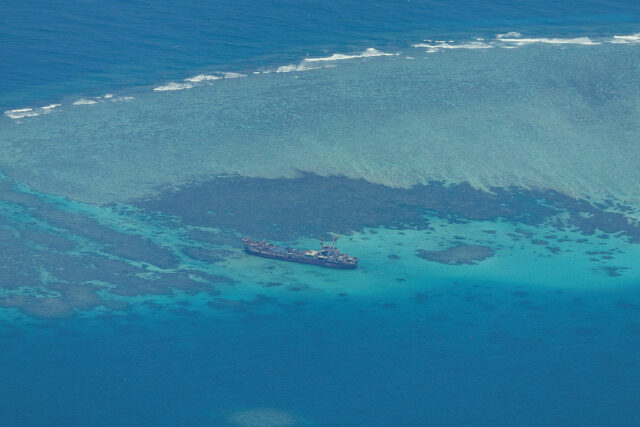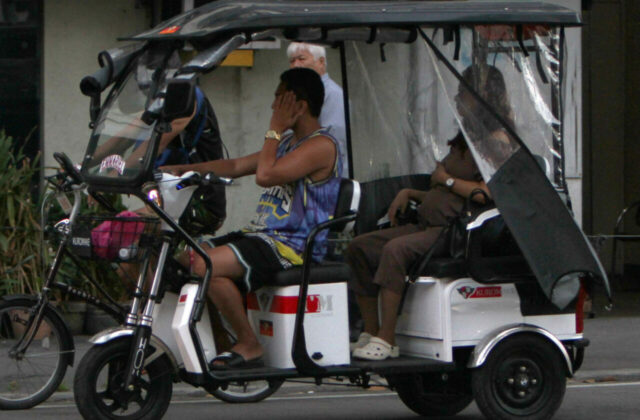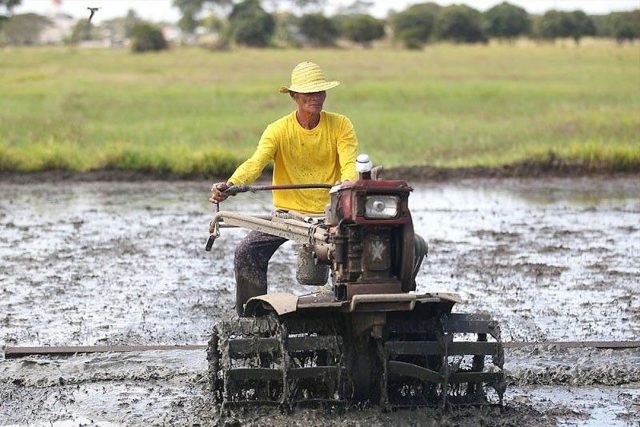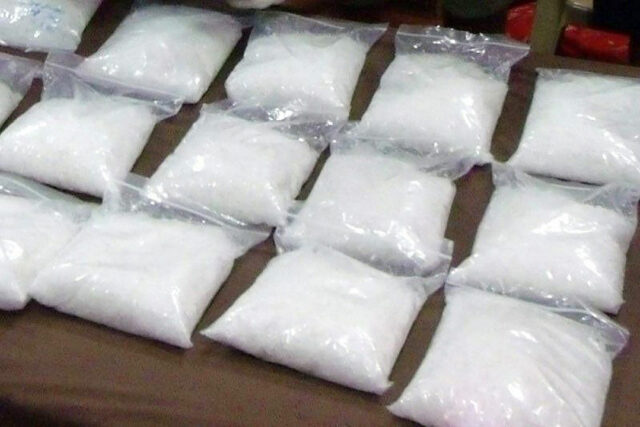By John Victor D. Ordoñez, Reporter
CHINA has repeatedly informed the Marcos government about the so-called gentleman’s agreement that barred the delivery of construction materials and repairs to a Philippine outpost at Second Thomas Shoal, its embassy in Manila said, adding that the deal was no secret.
“In the beginning of this current Philippine administration, the said agreement was still being followed in handling the resupply mission at Ren’ai Jiao (Second Thomas Shoal),” it said in a statement.
“But since February 2023, the Philippine side has ceased to abide by the agreement, categorically denied its existence and kept stirring up trouble to provoke incidents.”
The Philippine Department of Foreign Affairs (DFA) did not immediately reply to a WhatsApp message seeking comment.
The Chinese Embassy said the Philippines and China had agreed to a “new model” in managing the situation at Second Thomas Shoal during negotiations earlier this year.
“Regrettably, only one round of the resupply missions was carried out within the realm of these understandings and arrangements before they were unilaterally abandoned by the Philippine side for no good reason,” it added.
The embassy noted that in September, Beijing invited Teodoro L. Locsin, Jr., President Ferdinand R. Marcos, Jr.’s special envoy to China, to discuss ways to manage the dispute on Second Thomas Shoal.
The discussions resulted in an “internal understanding” of how to handle the situation, it added.
Mr. Marcos earlier said he was “horrified” by the thought that his predecessor Rodrigo R. Duterte might have compromised Philippine sovereignty by agreeing to keep the status quo at the shoal.
Tensions between the two neighbors have worsened in the past year as China’s coast guard continues to block resupply missions to the shoal, where the Philippines grounded a World War II-era ship in 1999 to assert its sovereignty.
Mr. Marcos said Chinese Ambassador to the Philippines Huang Xilian and former officials should clarify the details of the deal to his government.
Former presidential spokesman Herminio L. Roque earlier said the Philippines had agreed with China to keep the status quo, which meant only basic supplies would be delivered to a handful of Filipino soldiers at BRP Sierra Madre.
But Mr. Duterte’s legal counsel Salvador B. Panelo said his former boss had not entered into any deal with Chinese President Xi Jinping.
“China once again urges the Philippines to honor its commitments and consensus with China, show sincerity, stop provocations, return to the right track of dialogue and consultation as soon as possible,” the Chinese Embassy said.
The Philippines should work with China in managing the situation at the shoal “and safeguard the hard-won peace and stability in the South China Sea.”
‘AGGRESSIVE BEHAVIOR’
Meanwhile, the DFA urged China to reflect on its “aggressive” actions in the South China Sea, adding that the Philippine decision to boost ties with Japan and the US at a recent summit was a “sovereign choice” for the country.
China earlier issued remarks criticizing the trilateral meeting.
“The source of tension in our region is well known to all,” the DFA said in a statement. “It is China’s excessive maritime claims and aggressive behavior, including its militarization of reclaimed features, that are undermining regional peace and stability and raising tensions.”
The Chinese Embassy in Manila did not immediately reply to a Viber message seeking comment.
Mr. Marcos met with US President Joseph R. Biden and Japanese Prime Minister Fumio Kishida in the nations’ first trilateral summit in Washington last week.
The leaders committed to boost ties in maritime security amid China’s growing assertiveness in the waterway.
Mr. Marcos on Monday told foreign journalists the three-way summit was not directed at anyone and only seeks to boost relations among the three nations.
Chinese Foreign Ministry Spokesperson Mao Ning on Monday told a news briefing Beijing opposed the bloc politics of the three nations, saying it could worsen tensions in the waterway.
She said the US was clinging to the “Cold War mentality” of threatening other countries by forming alliances with other nations.
The DFA said Philippine ties with US and Japan align with international law.
The Chinese ministry’s references to the Cold War “sensationalizes” the situation in the South China Sea and “misrepresents the peaceful purpose of the trilateral cooperation,” it added.
“Nevertheless, those who wish to invoke the lessons of the past should also recall the need for adherence to the rule of law and how peace and stability has been maintained in our region through the observance and respect for international law,” the DFA said.
A United Nations-backed tribunal in 2016 said China’s claim to nearly the entire South China Sea has no legal basis, but Beijing has largely ignored the ruling and continued its island-building activities.
Mr. Marcos on Monday said his government is considering including Japan in its annual military exercises with the US.
Manila and Washington are set to hold their annual Balikatan (shoulder-to-shoulder) military exercises on April 22 to May 18, with 5,000 Filipino soldiers and 11,000 American servicemen expected to participate.
For the first time, it will be held beyond the Philippines’ 12-nautical mile territorial waters.
“The trilateral initiative is another platform to further promote regional peace and security,” the DFA said. “It is only reasonable and responsible that the participants discuss regional security issues of mutual concern, challenges to the rule of law and the peaceful resolution of outstanding disputes.”


